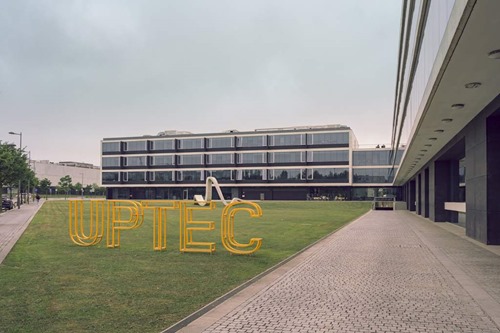UPTEC in European consortium worth three million euros to support tourism companies in the digital and green transition
/UPTEC_campus.jpg)
UPTEC – Science and Technology Park of the University of Porto was one of the partners chosen by the European Commission to join the ST3ER project and will have close to 600 thousand euros in funding available to support companies in the tourism sector for the digital and energy transition – twin transition.
ST3ER– Scaling Twin Transition in Tourism by harnessing the Experience Economy for greater Resilience takes place within the scope of the COSME program – Competitiveness of Companies and Small and Medium Enterprises, from the European Commission, and will have six partners in five countries (Ireland, Slovenia, Portugal, Spain and Denmark), with UPTEC being the only Portuguese partner, and which will be responsible for managing open calls for Small and Medium Enterprises ( SMEs) in the tourism sector to finance the respective projects.
With a duration of 36 months, and having started in September of this year, this project has a total budget of more than three million euros, financed between 90% and 100%, depending on the type of action. UPTEC will have 575,157.00 euros of available funding, and a large part of this amount – more than 400,000.00 euros – will be 100% financed, supporting the companies’ projects to be awarded within the scope of open calls.
ST3ER aims to support more than 200 SMEs in these five countries through specific measures, including 38 workshops, bootcamps, learning modules, international innovation forums, deep-dives, intersectoral meetings, round tables, 21 thousand hours of mentoring, maturity assessments digital and 32 matchmaking/B2B meetings, also sponsoring 70 innovation projects, and providing more than 20 examples of good practices that can reach more than 850 stakeholders, who will be able to replicate and transmit the knowledge acquired through this project.
SMEs selected for this program will benefit from advanced business support models, which aim to improve practices by implementing new systems, structures and tools, as well as innovation methods based on the challenges of carbon reduction, based on case studies and examples of intersectoral and interterritorial models.
/)

/IsabelMartinsSilva.jpg)

/canvascolor(0xffffffff)/2017_08_04_fundecyt-pctex-h.png)
/canvascolor(0xffffffff)/MemberLogo-36401-6008.png)
/canvascolor(0xffffffff)/2017_08_04_ATV.png)
/canvascolor(0xffffffff)/Clipboard-2.jpg)
/canvascolor(0xffffffff)/MemberLogo-5652-6081.jpg)
/canvascolor(0xffffffff)/NSTP_Logo-1_(002).png)
/canvascolor(0xffffffff)/acronimo_nombre3l_6.jpg)
/canvascolor(0xffffffff)/2018_01_24_Italy_Kilometro_Rosso.png)
/canvascolor(0xffffffff)/2017_08_04_Gararia.png)
/canvascolor(0xffffffff)/2017_08_07_HHTP.png)
/canvascolor(0xffffffff)/Captura_de_tela_2025-03-06_122825.png)
/canvascolor(0xffffffff)/2017_10_26_Portugal_Madan_Parque.jpg)
/canvascolor(0xffffffff)/2017_10_31_Spain_Fundacion_Comunitat_Valencian.jpg)
/canvascolor(0xffffffff)/2019_11_22_India_IKP.jpg)
/canvascolor(0xffffffff)/2017_08_04_Eindhoven.png)
/canvascolor(0xffffffff)/photo_2023-11-04_12-18-10_1.jpg)
/canvascolor(0xffffffff)/2025_01_30_The_Netherlands_Noviotech_campus.png)
/canvascolor(0xffffffff)/MemberLogo-79604-5902.jpg)
/canvascolor(0xffffffff)/MemberLogo-5668-6103.gif)
/canvascolor(0xffffffff)/Logo_ITP-01_1.jpg)
/canvascolor(0xffffffff)/BizMaker_payoff__grey_1.png)
/canvascolor(0xffffffff)/WhatsApp_Image_2023-08-01_at_14.01.59_5.jpg)
/canvascolor(0xffffffff)/gcid-logo_logo-colour_for_web_with_20__2.jpg)
/canvascolor(0xffffffff)/HiRes_logo_transparent.png)
/canvascolor(0xffffffff)/logo_21.png)
